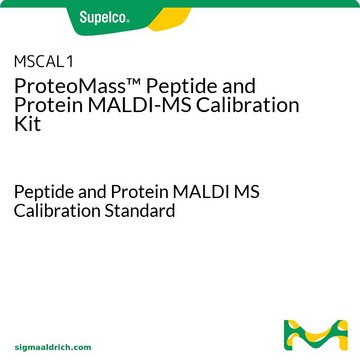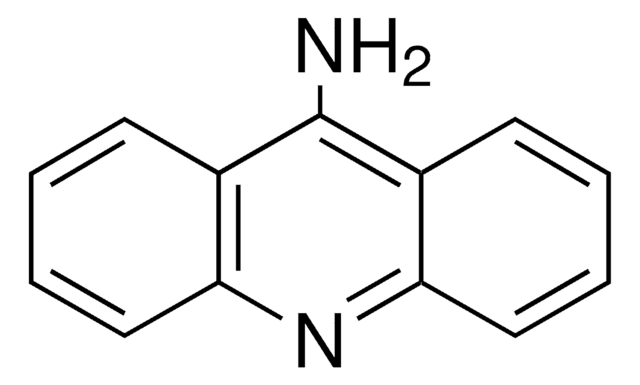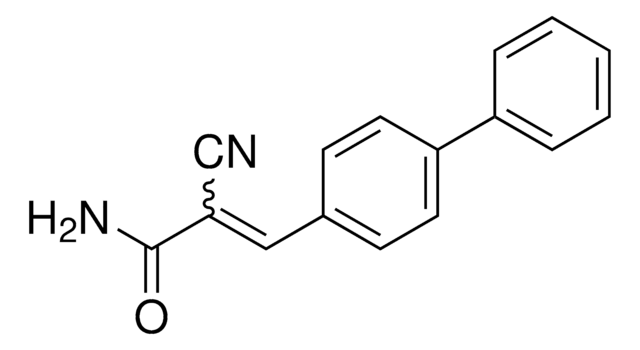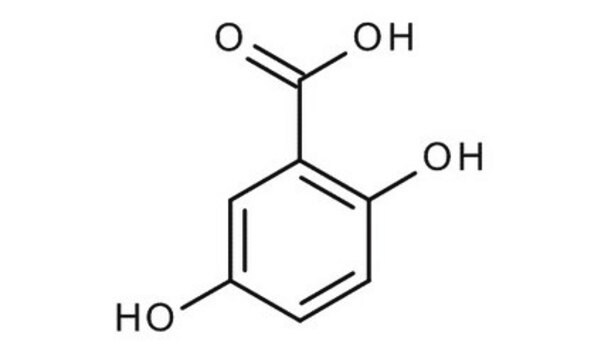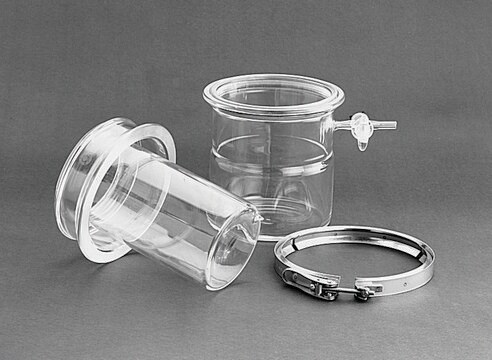50862
Super-DHB
suitable for matrix substance for MALDI-MS, ≥99.0%
About This Item
Recommended Products
Quality Level
Assay
≥99.0% (sum of DHB and 2-hydroxy-5-methoxybenzoic acid, HPLC)
≥99.0%
analyte functional class(es)
polymers
analyte chemical class(es)
glycans, peptides, proteins
technique(s)
MALDI-MS: suitable
solubility
methanol: 1%, clear
cation traces
Ca: ≤5 mg/kg
Cd: ≤5 mg/kg
Co: ≤5 mg/kg
Cr: ≤5 mg/kg
Cu: ≤5 mg/kg
Fe: ≤5 mg/kg
K: ≤5 mg/kg
Li: ≤5 mg/kg
Mg: ≤5 mg/kg
Mn: ≤5 mg/kg
Na: ≤5 mg/kg
Ni: ≤5 mg/kg
Pb: ≤5 mg/kg
Zn: ≤5 mg/kg
suitability
suitable for matrix substance for MALDI-MS
General description
Application
- Glycan and Protein Analysis of Glycoengineered Bacterial E. coli Vaccines by MALDI-in-Source Decay FT-ICR Mass Spectrometry: This study demonstrates the application of Super-DHB as a matrix in advanced mass spectrometry for the detailed characterization of glycoengineered vaccines, essential for researchers in pharmaceuticals and life science manufacturing (Nicolardi et al., 2022).
- An Improved Method for Rapid Detection of Mycobacterium abscessus Complex Based on Species-Specific Lipid Fingerprint by Routine MALDI-TOF: Highlights the use of Super-DHB in enhancing the lipid fingerprinting capabilities of MALDI-TOF mass spectrometry, critical for rapid microbial identification in medical microbiology and pharmaceutical research (Jia Khor et al., 2021).
- Discrimination of bovine milk from non-dairy milk by lipids fingerprinting using routine matrix-assisted laser desorption ionization mass spectrometry: Illustrates the role of Super-DHB in differentiating dairy and non-dairy milks based on lipid profiles using MALDI-MS, vital for food scientists and chemists in quality control and food safety (England et al., 2020).
Packaging
Analysis Note
related product
Signal Word
Warning
Hazard Statements
Precautionary Statements
Hazard Classifications
Acute Tox. 4 Oral
Storage Class Code
11 - Combustible Solids
WGK
WGK 3
Flash Point(F)
Not applicable
Flash Point(C)
Not applicable
Personal Protective Equipment
Choose from one of the most recent versions:
Certificates of Analysis (COA)
Don't see the Right Version?
If you require a particular version, you can look up a specific certificate by the Lot or Batch number.
Already Own This Product?
Find documentation for the products that you have recently purchased in the Document Library.
Customers Also Viewed
Our team of scientists has experience in all areas of research including Life Science, Material Science, Chemical Synthesis, Chromatography, Analytical and many others.
Contact Technical Service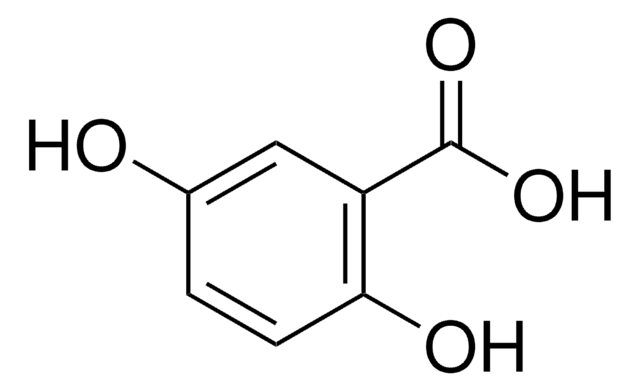

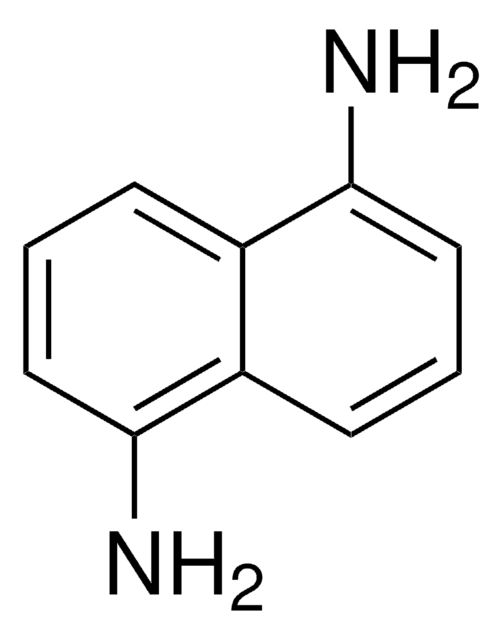
![trans-2-[3-(4-tert-Butylphenyl)-2-methyl-2-propenylidene]malononitrile matrix substance for MALDI-MS, ≥99.0% (HPLC)](/deepweb/assets/sigmaaldrich/product/structures/249/587/f8021369-f65a-413d-887d-3c8a4d2a248f/640/f8021369-f65a-413d-887d-3c8a4d2a248f.png)
